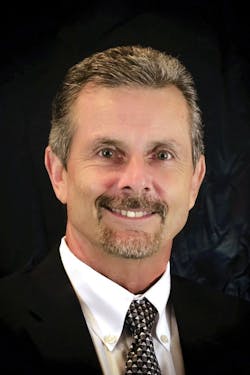Digital Direction
At the 2017 Water Quality Assn. (WQA) Convention and Exposition, Bob Maisner, vice president of sales and marketing for Paragon Water Systems Inc., assumed the position of WQA president. WQP Managing Editor Bob Crossen spoke with Maisner about the direction he would like to take WQA in 2017 and how he intends to accomplish his goals.
Bob Crossen: In what direction would you like to see WQA head in 2017?
Bob Maisner: We’re excited to continue with the momentum we built in 2016. It was a pivotal year for the water treatment industry, primarily because of the Flint, Mich., lead crisis. The WQA and our members helped educate Flint residents and the public about available water treatment options while at the same time building relationships with local, state and federal officials. We became an important resource in the months that followed. But it’s not just Flint, and it’s not just lead. We see water-related issues popping up across the country, and our members are uniquely positioned to help communities respond to their challenges. I want to continue to make WQA and its members the recognized authority for federal, state and local officials and, most importantly, the consumers.
Crossen: Why is it beneficial for dealers to become involved with WQA?
Maisner: The water industry is stronger when it works together. The WQA is the leading voice of the industry and a strong advocate for legislation and regulatory issues in Washington, D.C., and at the state level. We track bills across the country and keep members informed about their statuses. In addition, we provide education and training so water treatment professionals can become certified and take their careers and businesses to the next level while giving confidence to the consumer that they are true professionals. WQA also provides technical guidance, with a host of resources to keep members up to date about the latest contaminants and treatment options.
Crossen: How will you work with the board to grow membership?
Maisner: Communication is vital. We’re doing more with digital technology, video and social media. Our website traffic is growing, and we have a strong presence at major trade shows. We’re also reaching out to the media, such as your publication, to make sure our story of the benefits of being a WQA member is told. We’re very excited about our new Business Excellence Program at WQA. This is an opportunity for members to showcase their expertise and their commitment to excellence and the betterment of water quality.
Crossen: What strategies will you use to improve consumer and industry relevance?
Maisner: Here again, we believe communication will play a key role. The relevance of our industry has never been greater, as I stated earlier. We are looking at expanding ways to track more information about what the public is looking for when it comes to questions about water and water treatment. That’s a reason our 2017 Consumer Opinion Study is so valuable to our members. We’ll be diving deeper into the study’s analytics to pull out the essential nuggets of information that can help us do our jobs more effectively. And we’re continuing to partner with other like-minded associations so we can be an even greater resource for the media and government officials who are making key decisions affecting water treatment.
Crossen: What regulations and legislative issues are the key targets for WQA in 2017?
Maisner: WQA has been closely following the coverage of drinking water quality issues around the country following the Flint, Mich., water crisis. Federal and state legislators have begun investigating water infrastructure needs and current water quality regulations. During the current session, 20 states have proposed or passed legislation to require schools and other public places to test for lead in drinking water. States also are considering remediation guidance, and have proposed legislation to require the installation and maintenance of certified filters for lead reduction in schools. Beyond lead, states are looking to regulate contaminants that are not regulated federally.
Crossen: What is your plan for WQA’s training and professional certification programs?
Maisner: This is the 40th year of our program of certifying water treatment professionals and providing them with the skills they need to distinguish themselves in the field. So we’re busy again this year offering training through our Modular Education Program, webinars and onsite training at state and regional association meetings.
